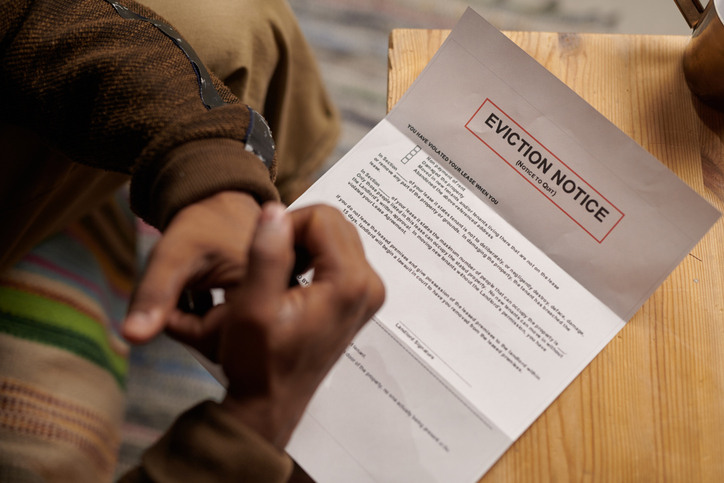Evictions are challenging and can be highly stressful. It’s something every landlord wants to avoid, but should be prepared for. Understanding the legal steps involved is crucial for Alberta landlords to protect their property rights effectively. Our latest guide will walk you through the eviction processes in Alberta, from types of evictions to tips on how to minimize disputes with tenants.
What Are Some Reasons for Eviction?
There are many reasons evictions can be initiated in Alberta, but the most common is failure to make rent payments. It’s important to note that tenants are not allowed to withhold rent payments to force a landlord to address concerns in Alberta. Rent must always be paid in full and on time.
Other reasons for eviction include breaching the terms of the rental agreement, such as having unauthorized occupants or causing damage to the property. Endangering or disturbing others, like playing loud music late at night or threatening other tenants, is also cause for eviction. In these cases, the landlord may issue a formal notice or apply to the Residential Tenancy Dispute Resolution Service (RTDRS) or Court for an order to terminate the tenancy.
Types of Eviction Notices and How to Use Them
Alberta landlords must use specific types of notices depending on the situation:
24-hour notice
This is a serious notice that is only issued when a tenant causes significant damage to the property, assaults, or threatens to assault the landlord or another tenant. The notice must clearly state the time and date the tenancy ends.
48-hour notice
Used when an unauthorized occupant remains on the premises after the original tenant has moved out. This notice must also state the exact time the tenancy ends.
14-day notice
Used for a “substantial breach,” including non-payment of rent, unauthorized occupants, damage, or disturbances. The notice must specify the reasons for eviction, the address, and the rent due, and be signed by the landlord.
When issuing a notice for unpaid rent, landlords must also inform the tenant that the tenancy will not be terminated if all outstanding rent is paid before the termination date. If tenants object to the reasons outlined in a 14-day notice, they must provide written objections within the notice period. If the tenant remains after the notice expires, the landlord can apply to RTDRS or Court to legally regain possession of the rental unit.
Ending Tenancies Properly and Minimizing Disputes
It’s crucial to properly end a tenancy, and this requires landlords to provide the correct amount of notice based on the type of tenancy:
Week-to-Week tenancy
One full tenancy week’s notice.
Month-to-Month tenancy
Three full tenancy months’ notice from the landlord.
Yearly Tenancy
Notice must be given at least 90 days before the end of the tenancy year.
Fixed-Term Leases
Unlike periodic leases, fixed-term leases do not require any notice to end on the specified date of the agreement. These leases automatically expire at the end of the term unless both parties agree to renew. This is a frequent source of confusion for tenants-many believe 90 days’ notice is required, but this only applies to yearly periodic leases, not fixed-term agreements.
In addition, you must complete move-in and move-out inspection reports. These inspections are mandatory and must document the condition of the premises at the start and end of a tenancy. This helps determine whether any damages justify deductions from the security deposit. Failure to complete these inspections correctly can prevent a landlord from making any deductions at all.
To minimize disputes, landlords should:
- Keep all communication and notices in writing.
- Document inspections, rent payments, and tenant communications.
- Maintain professionalism, even under challenging situations.
Clear documentation and a solid understanding of legal responsibilities can help you avoid unnecessary conflicts and costly legal action.
It’s never easy to evict a tenant, and the stress involved can quickly become overwhelming. Fortunately, GIL can provide expert advice and services on tenant relations and landlord-tenant laws and regulations. Fill out the form below for a free property management consultation.

